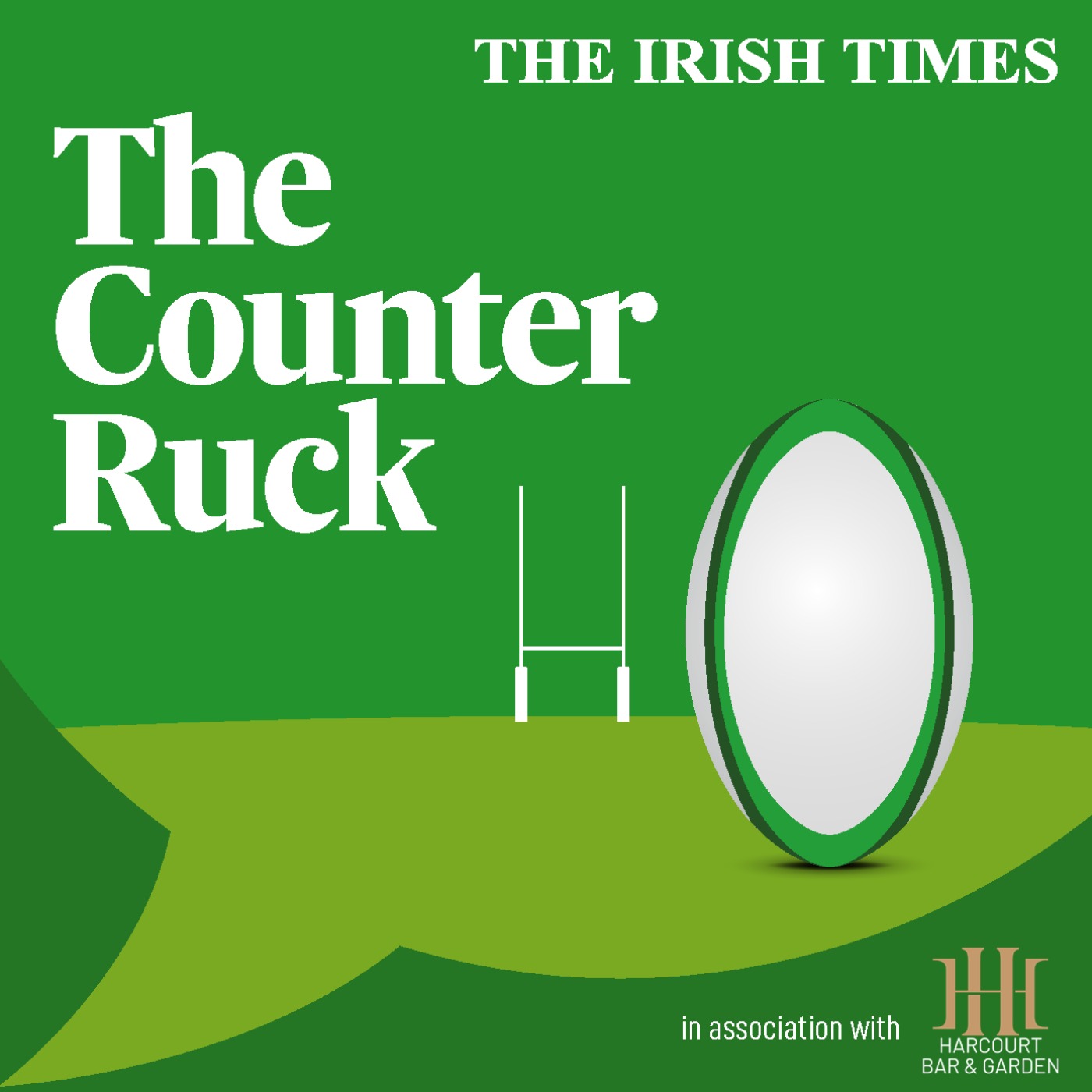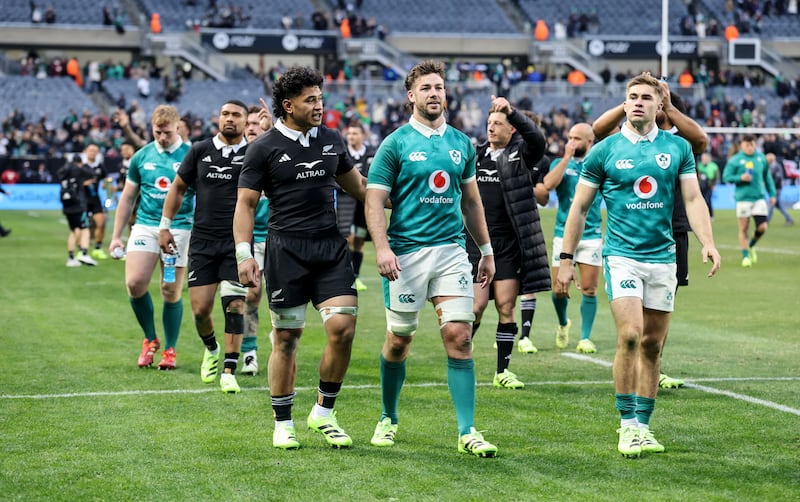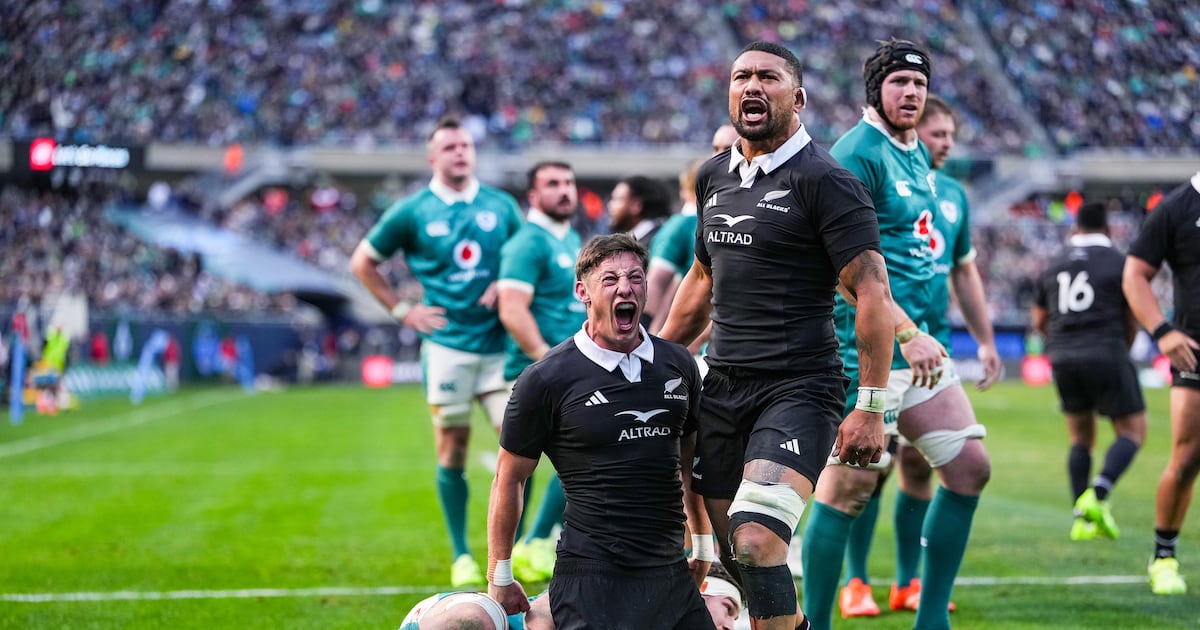It has been a long time, 13 years to be precise, since the All Blacks reacted to a victory over Ireland with not much more than a quick smile, shoulder shrug and definitive sense that it was no biggie.
But that was essentially the reaction in Chicago – a quiet satisfaction rather than outright elation, because for all that the All Blacks were taken with their own performance in the final 20 minutes in which they unleashed their most accurate, cohesive and fluid performance of the last two years, they have a sneaky suspicion that they encountered an Ireland team on the wane.
It’s always a bit hard to tell what’s going on deep within the All Blacks and accurately gauge their true emotional state, as their brand is built on stoicism and humility, which end up coming across as a kind of joylessness.
The All Blacks are always their own harshest critics and never a bunch to sniff the flowers and hear the birds sing, so even when they won back-to-back World Cups in 2011 and 2015, they were still sporting the perennial scowl.
Unbridled joy just isn’t in their wheelhouse. But even allowing for their not so sunny disposition and constant need to find fault where it maybe doesn’t exist, there was nothing performative about their measured reaction in Chicago.
The truth is that the All Blacks, as much as they respect their recent rivalry with Ireland, suspect that they met an ageing and declining version of the team that has troubled them so much since Ireland’s historic first win in Chicago in 2016.
 Can Ireland upset the odds against New Zealand?
Can Ireland upset the odds against New Zealand?
The 26-13 win at Soldier Field was the third consecutive victory the All Blacks have posted against Ireland and there is a sense now, certainly when the rivalry is viewed through New Zealand’s lens – maybe prematurely and maybe unwisely – that there is a gap developing between the two countries again.
It’s not that we have returned to the previous era – the one where the All Blacks turned up to play Ireland expecting to win, duly did so and treated the whole business with a sort of perfunctory indifference as if it was a boring household chore to be completed.
That was how things used to be, epitomised by New Zealand’s 60-0 thrashing of Ireland in 2012, which was seen by Kiwis as a true, if exaggerated, reflection of how far apart the two teams were in ability.
 Ireland and New Zealand in Chicago, where there was a feel of the good old days for the All Blacks in those last 20 minutes. Photograph: Inpho
Ireland and New Zealand in Chicago, where there was a feel of the good old days for the All Blacks in those last 20 minutes. Photograph: Inpho
The last nine years, which saw Ireland win against the All Blacks five times, forced a big re-evaluation of the men in green and they were elevated to genuine heavyweight status in New Zealand.
But the way the last 20 minutes played out in the US, it’s hard for Kiwis not to wonder whether the period between 2016-2024 will end up being an aberration when set against the longer sweep of history.
This is by no means a great All Blacks team, but what sparked a bit of optimism about their likely direction of future travel was the way they seemed to morph into a better version of their previous selves in the final 20 minutes by losing their adherence to the highly prescriptive and somewhat stilted plan that has been imposed upon them by the coaching group, and instead reverted to a freewheeling, ad-libbing, play-what-you-see formula.
There was a feel of the good old days about those last 20 minutes – New Zealanders doing what New Zealanders do best and playing unstructured rugby that was driven by their innate ability to pass sharply, see space and use their natural power and athleticism to beat defenders and keep the ball alive.
The most striking element about it was that following a few injuries to key players before they left for the US, and then seeing captain Scott Barrett forced off with a gashed leg after four minutes and brother Jordie leave 20 minutes later with a damaged ankle, the All Blacks ended up playing most of the game with one of their youngest and least experienced sides in years.
But their cohort of youngsters embraced the occasion and blew Ireland away. The 22-year-old Dutch-born Fabian Holland was the best lock on the field, while the baby-faced backrowers Peter Lakai and Wallace Sititi had too much ball-carrying crunch for Ireland to handle.
Tamaiti Williams, still only 25, came off the bench to buckle the Irish scrum, and Leicester Fainga’anuku brought a dynamism that Ireland’s veteran midfield had no ability to contain.
The point that became unmissable, albeit by necessity rather than design, is that the All Blacks were a vastly different team in personnel to the one they were at the last World Cup in 2023, while Ireland looked to be hoping to squeeze the last drops of juice out of their veteran brigade that made them such a force at that tournament.
One country was signalling its future, while the other was clinging to its past. While the All Blacks have a long way to go to rebuild themselves for the 2027 World Cup, the conclusion from the Chicago fixture is that they have at least begun and made better progress on that front than Ireland.
Or to be more blunt, the gap that is developing between them is not so much because the All Blacks are a side advancing quickly back up the world, but because Ireland are more rapidly sliding down it.

